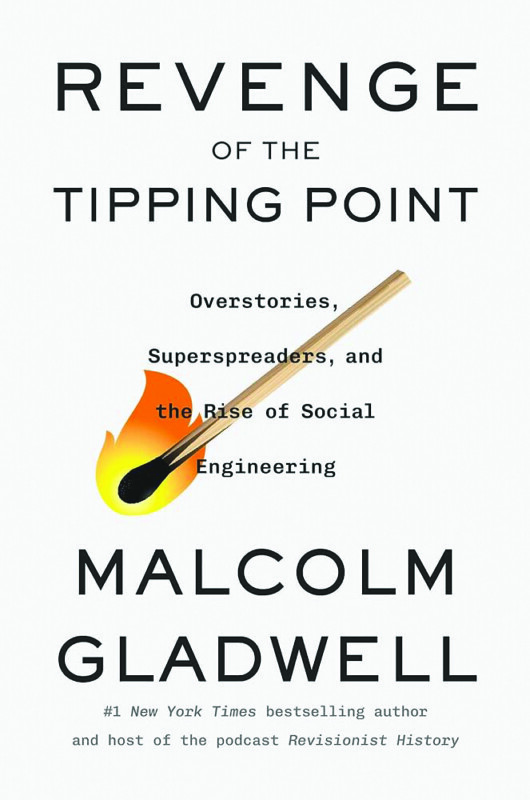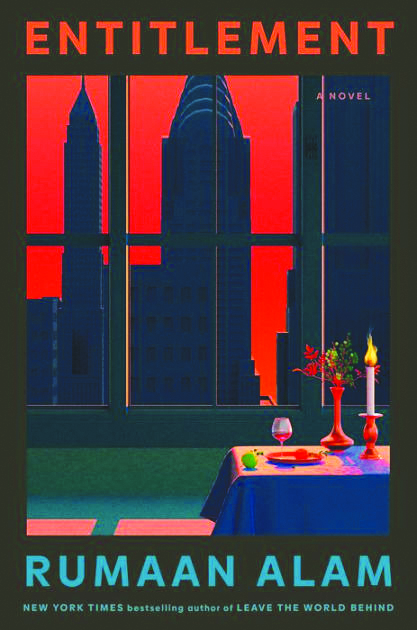Playground, by Richard Powers (381 pages, W. W. Norton & Co.)
Richard Powers is one of America’s most distinguished novelists, and also one of the most daunting. His 2018 novel The Overstory won the Pulitzer Prize for fiction, despite a complicated narrative entwining nine characters. By comparison, his latest, Playground, gives us just four. It still gives the reader a mental workout.
While The Overstory was about trees, Playground is about the ocean and, surprisingly, AI. Its multiple narratives are linked through four lives intricately knit together.
Evie Beaulieu has been obsessed with water since, when she was 12, her father tossed her in a pool of water to test a device that allows people to breathe underwater. She emerged “another kind of creature,” becoming an expert diver with experience far beyond her years, a woman who would rather be on water than on land. She goes on to write a book called “Clearly It Is Ocean” — the title taken from the real-life quote of the science fiction writer Arthur C. Clarke, who said, “How inappropriate to call this planet Earth when it is clearly ocean.”
That book was read in childhood by a boy named Todd Keane, who was born the first child of the new year and carried with him for the rest of his life the pressure to always be first at everything. The marriage of Todd’s parents was a train wreck — “My father: the strength of mania. My mother: the cunning of the downtrodden.”
The manic father, who always needed to be doing something resembling work, drilled his son in games, from Chutes and Ladders to backgammon to chess, even though, like Evie, Todd had a deep connection to water, because Lake Michigan was the place he escaped to in his mind when the household got too chaotic: “When my mind raced and the future rushed at me with knives, the only thing that helped was looking out from the castle and seeing myself walking across the bottom of the lake.”
It is an obsession with games that later connects Todd to the brilliant Rafi Young, a bibliomaniac who has been reading light-years beyond his peers since preschool because of an abusive father who was determined that his children have a better education than he did. Todd and Rafi meet in school and bond by playing chess and Go throughout high school and college, becoming so close that it seems that “our brains are synchronized.” But later they suffer a rift that takes them on vastly different paths.
Todd invents a world-changing online platform called Playground and becomes a billionaire diagnosed with Lewy body dementia at age 57. Meanwhile, Rafi goes on to work for an NGO and to marry Ina Aroita, a native of Hawaii whose life comprises the fourth narrative in this story.
Rafi and Ina make their home on Makatea, an island in French Polynesia. For decades the island had been plundered for its copious phosphate, which helped supply the world with fertilizer and thus food. Once the phosphate mines closed, Makatea’s role in the world shrunk and it was just occasionally visited by wealthy tourists looking for a couple of days of climbing adventure.
But it was now faced with a seemingly existential decision: whether to allow an American company to use it as a port for “seasteading” — the launch of modular floating cities. Aided by artificial intelligence called Profunda, the residents of Makatea are preparing to take a vote on whether to allow this venture to begin.
All of this is just the set-up to the deeper complexity of the novel, which wants us to to think deeply about the unintended consequences of the development of AI and human dominance of the planet as we wade through the events of each character’s life, laid out in constantly changing points of view.
It also wants us to love the ocean like Evie does. It succeeds, with sparkling prose and the insistence that the reader become attached to the characters, who make the case for the ocean through their observations, experiences and passion.
In the opening pages of the book, for example, Ina and her daughter, while beachcombing, come across the carcass of a young albatross whose chest cavity was stuffed with small pieces of plastic: “bottle caps, a squirt top, the bottom of a black film canister at least fifteen years old, a disposable cigarette lighter, a few meters of tangled-up monofilament line and a button in the shape of a daisy.”
Toward the end of the book Powers gets in a dig at everyone who has ever dismissed his writing as too cerebral or complex, writing of Evie’s editor, “The editor knew that no one had ever lost a sale by underestimating the desire of the reading public to read at a simpler level.”
Despite that, Powers effectively applies a technique that is coming dangerously close to overuse in more populist fare: the plot twist, the sort that makes you want to read the book again, despite its heft.
Powers may limit his audience, and thus his influence, by refusing to write for the masses, but for those willing to rise to the challenge Playground is a wholly immersive experience. It offers a refuge from reality much like the ocean offers.
As Todd reflects, when one’s attention is fixed on a hidden world throbbing with primordial life, “Chicago was nothing. Illinois and even the U.S. were a joke. There were insanely different ways of being alive, behaviors from another galaxy dreamed up by an alien God. The world was bigger, stranger, richer, and wilder than I had a right to ask for.” A






